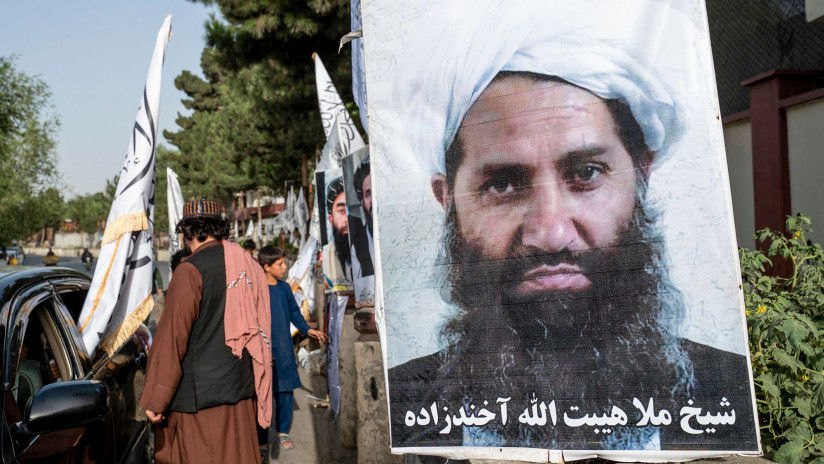Taliban's Crackdown on Women Leads to International Criminal Court Warrants
- IHR
- Jul 9, 2025
- 3 min read

The International Criminal Court (ICC) has issued arrest warrants for two high-ranking leaders of the Taliban movement, which governs Afghanistan, on charges of "gender-based persecution." This significant move comes as reports continue to highlight the severe restrictions and violence faced by women under Taliban rule, with support systems for victims largely dismantled.
On July 8, the ICC announced warrants for Hibbatullah Akhundzada, the Taliban's Supreme Leader and de facto ruler of Afghanistan, and Abdul Hakim Haqqani, the Chief Justice of Afghanistan's Supreme Court. The court stated there are "reasonable grounds to believe" that these leaders are responsible for crimes against humanity, specifically targeting girls and women based on their gender and depriving them of fundamental rights and freedoms.
A System of Control: Taliban's Restrictions on Women
Since seizing power in Afghanistan in August 2021, the Taliban has systematically imposed a wide array of restrictions on women's lives, often justifying these measures by claiming to fulfill the requirements of Islamic law, Sharia. These restrictions have severely curtailed women's rights to education, work, privacy, family life, freedom of movement, and access to medical assistance from male doctors.
The impact of these policies has been devastating. According to UNESCO, over 1.4 million girls in Afghanistan are currently deprived of education, jeopardizing the future of an entire generation. Beyond educational and professional barriers, human rights defenders, local residents, and even some Taliban members have reported widespread repressions against women, including instances of killings, torture, imprisonment, and sexual violence.
Dismantling Support: The Closure of Women's Shelters
A critical consequence of the Taliban's takeover has been the near-total closure of women's shelters across the country. Prior to August 2021, 26 such shelters operated under the previous government, providing vital safe havens, psychological counseling, and legal aid to women fleeing abusive husbands, family members, or forced marriages.
The story of Morsal, a 40-year-old widow with three young children, including a disabled son, tragically illustrates this crisis. With no work opportunities and no social security system, Morsal was forced to return to her in-laws' home, which she describes as a "house of violence." "My brothers-in-law insult me and are violent towards me," she told Radio Azadi, highlighting the desperate situation many women face with nowhere to turn.
Many shelters ceased operations out of fear of retaliation as the Taliban rapidly advanced, with staff often burning important documents and fleeing with the women they had sheltered. Officials from these now-closed facilities describe facing an impossible choice: expose staff and residents to potential Taliban pressure, or close down and send women back to abusive environments.
Further exacerbating the problem, the Taliban dissolved the Ministry of Women's Affairs, replacing it with the Ministry for the Promotion of Virtue and Prevention of Vice, which enforces a strict "morality" code. Roya Dadras, a former spokesperson for the Ministry of Women's Affairs, stated that there is now "no department or institution in Afghanistan where women who are victims of violence can talk about their problems or seek support." This vacuum has led to a peak in forced and early marriages, domestic violence, and female suicides.
International Condemnation and Taliban's Defiance
The United Nations has characterized the Taliban regime's severe discrimination against women as "gender persecution and gender apartheid." A July UN report also highlighted that millions of Afghan refugees returning from neighboring countries are further straining the already weak system, facing increased risks of gender-based violence, early and forced marriage, human trafficking, and forced sexual relations.
In response to the ICC's arrest warrants, the Taliban immediately rejected the decision as "unfounded rhetoric," asserting that they do not recognize the ICC's authority. Taliban spokesperson Zabihullah Mujahid stated on X that "Such absurd statements will have no effect on the 'Taliban' leadership's firm devotion and commitment to Sharia (Islamic law)." The Taliban also accused the ICC of "remaining silent in the face of hundreds of women and children being killed daily" in the Gaza Strip.
Despite Afghanistan being a party to the Rome Statute, which grants the ICC jurisdiction, the previous government that cooperated with the court no longer exists, having been overthrown by the Taliban. This creates a complex legal and diplomatic challenge for enforcing the warrants.
The ICC's decision marks a significant step in holding the Taliban leadership accountable for their policies. However, with the Taliban's defiant stance and the ongoing humanitarian crisis, the struggle for Afghan women's rights remains a critical and urgent global concern.
.png)



Comments